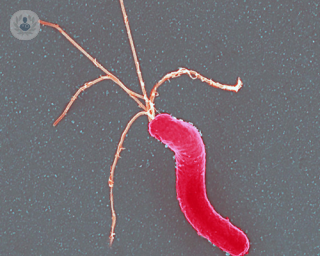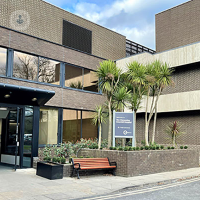Helicobacter pylori
Dr Antanas Mickevicius - Surgery
Created on: 11-13-2012
Updated on: 05-22-2023
Edited by: Conor Lynch
What is helicobacter pylori?
Helicobacter pylori is a bug or bacterium that causes stomach infections. The bacterium affects two thirds of the world's population. It grows in the mucous layer of the stomach by secreting urease, an enzyme that converts urea (an important chemical compound for metabolism) into ammonia. As a result, it neutralises the acidity of the stomach and creates an environment that is ideal for the growth of the pylori bacteria.

What are the symptoms?
Helicobacter pylori is characterised by the following symptoms:
- Abdominal pain
- Belching
- Nausea
- Loss of appetite and weight
- Passing gas
- Bloating and a feeling of fullness
- Dyspepsia or indigestion
Helicobacter pylori must be eradicated as soon as symptoms present to avoid further complications such as abdominal infection, peritonitis, haemorrhages, or ulcers. The presence of H. pylori can also increase the risk of stomach cancer.
What are the causes of helicobacter pylori?
This bacterium is transmitted through direct contact with an infected person. The infection can be passed on by:
- Stool to mouth (if after defecation the infected person does not wash their hands)
- Contaminated water
- Contact with animals
Can it be prevented?
To prevent H. pylori, good hygiene is important. Wash your hands thoroughly after going to the bathroom and eat in clean places where good hygiene protocol is followed.
What is the treatment?
The treatment for H. pylori includes:
- Antibiotics: to address or prevent infections
- Medications: to reduce the amount of acid produced in the stomach
- Surgery: in the case of the infection causing ulcers.









